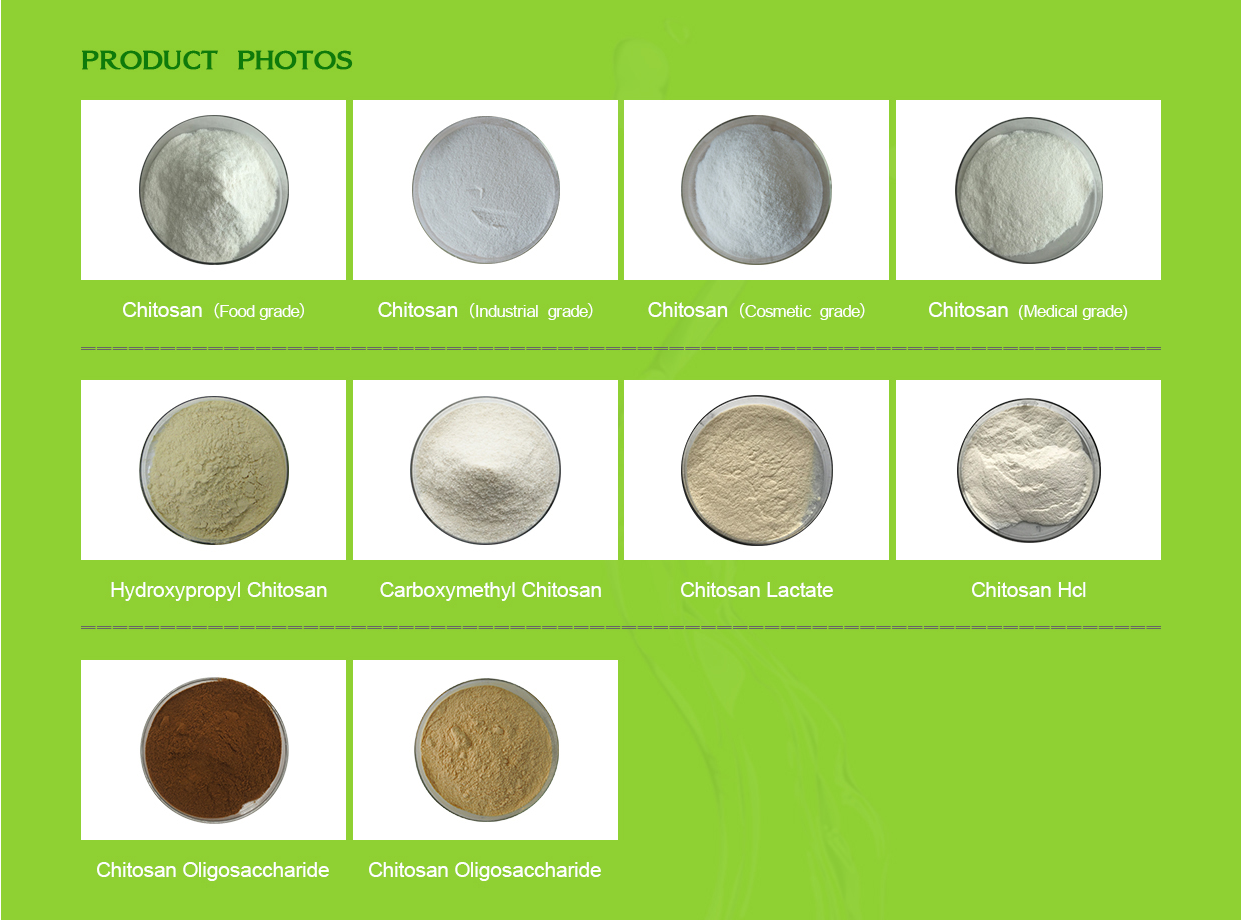Chitosan oligosaccharide (COS) is a derivative of chitosan, which is a natural polymer derived from chitin, a component found in the shells of crustaceans like shrimp and crabs. Chitosan oligosaccharide is produced by enzymatic or chemical degradation of chitosan, resulting in shorter chains of chitosan molecules. It has gained attention for its potential health benefits and various applications. Here are some of the outcomes and potential effects of chitosan oligosaccharide:

Health Supplements: Chitosan oligosaccharide is often marketed as a dietary supplement due to its potential health benefits. It is claimed to aid in weight management by reducing fat absorption, promoting satiety, and potentially modulating gut microbiota. However, the scientific evidence for these claims is limited and conflicting, and more research is needed to establish its effectiveness as a weight loss aid.
Immune System Support: Some studies suggest that chitosan oligosaccharide might have immune-enhancing effects. It is believed to stimulate the immune system by promoting the activity of certain immune cells and cytokines, potentially leading to improved immune responses. However, further research is required to better understand and validate these potential benefits.
Antioxidant Properties: Chitosan oligosaccharide has been investigated for its antioxidant properties. Antioxidants help neutralize harmful molecules called free radicals, which are implicated in various chronic diseases and aging. Chitosan oligosaccharide’s antioxidant activity could have potential health implications, but more research is needed to determine its effectiveness compared to other well-studied antioxidants.
Agricultural Applications: Chitosan oligosaccharide has been explored for its potential use in agriculture as a plant growth promoter and stress mitigator. It is believed to enhance plant resistance to pathogens, improve nutrient uptake, and mitigate abiotic stress factors. Research is ongoing to evaluate its efficacy in improving crop yields and plant health.
Biomedical and Pharmaceutical Applications: Chitosan oligosaccharide’s biocompatibility and potential biological activities have led to investigations into its use in drug delivery systems, wound healing, tissue engineering, and other biomedical applications. It can be modified to encapsulate and deliver drugs to specific target sites in the body.
It’s important to note that while chitosan oligosaccharide shows promise in various applications, more rigorous scientific research is needed to fully understand its effects, mechanisms of action, and potential risks. As with any supplement or bioactive compound, individual responses may vary, and consulting with a healthcare professional before using chitosan oligosaccharide or any other supplement is recommended.
The curative effect of Chitosan Oligosaccharide
Chitosan oligosaccharide is a derivative of chitosan, which is a biopolymer derived from chitin, a natural polymer found in the shells of crustaceans like shrimp and crabs. Chitosan oligosaccharide has gained attention for its potential health benefits, but it’s important to note that scientific research is ongoing and its curative effects are not universally established. Here are some potential benefits and effects of chitosan oligosaccharide based on existing research:
Antioxidant Properties: Chitosan oligosaccharide is believed to possess antioxidant properties, which means it may help neutralize harmful free radicals in the body. Antioxidants are associated with reducing oxidative stress and protecting cells from damage, which could contribute to overall health.
Immune System Support: Some studies suggest that chitosan oligosaccharide might have immune-enhancing effects by promoting the activity of certain immune cells. This could potentially help the body’s defense mechanisms against infections and diseases.
Cholesterol Management: There is some evidence to suggest that chitosan oligosaccharide might help reduce levels of low-density lipoprotein (LDL) cholesterol, commonly referred to as “bad” cholesterol. This could have implications for cardiovascular health.
Weight Management: Chitosan oligosaccharide has been explored as a dietary supplement for weight management. It is believed to have the ability to bind to dietary fat in the digestive tract, potentially reducing fat absorption and calorie intake. However, the effectiveness of this mechanism for significant weight loss is still debated and may vary from person to person.
Gut Health: Chitosan oligosaccharide may have prebiotic properties, meaning it could provide nourishment for beneficial gut bacteria. A healthy gut microbiome is associated with various aspects of health, including digestion, immune function, and metabolism.
Wound Healing and Skin Health: Some research suggests that chitosan oligosaccharide may have wound-healing properties and could potentially be used in topical formulations to support skin health.

It’s important to note that while these potential benefits are supported by some research, the overall scientific consensus on the curative effects of chitosan oligosaccharide is still developing. More studies are needed to fully understand its mechanisms of action, potential side effects, and long-term effects.
If you are considering using chitosan oligosaccharide supplements for any specific health concern, it’s recommended to consult with a healthcare professional before starting any new dietary or supplementation regimen. They can provide personalized advice based on your individual health needs and circumstances.
